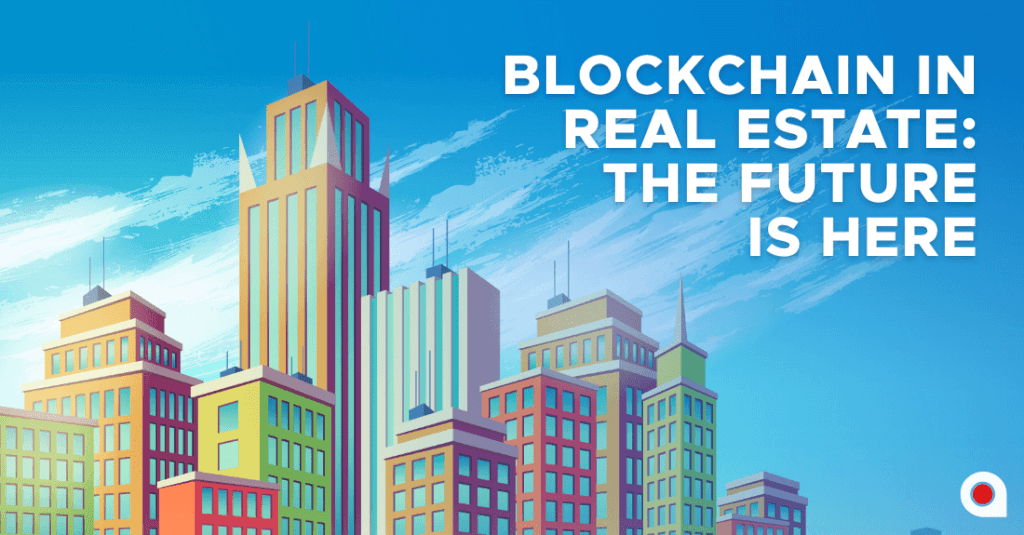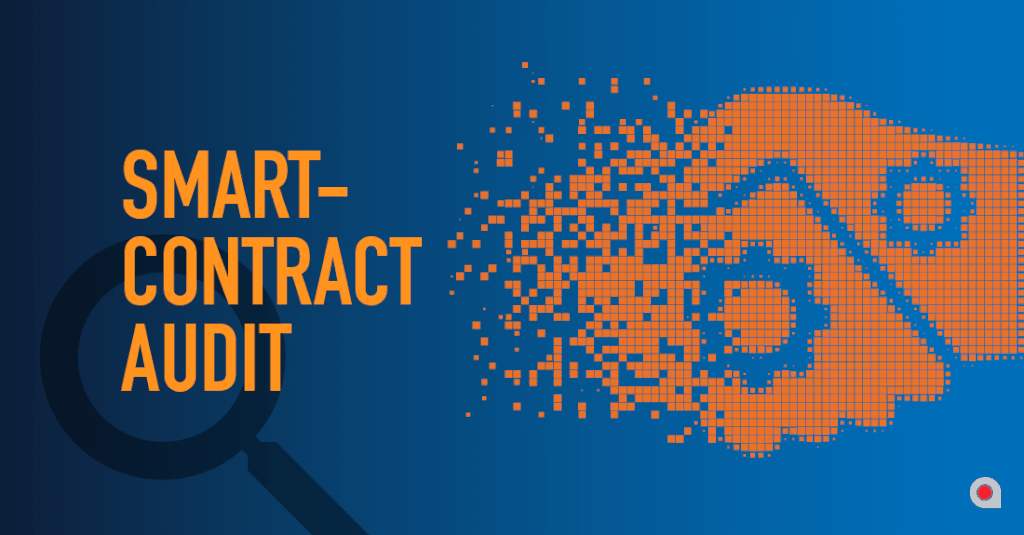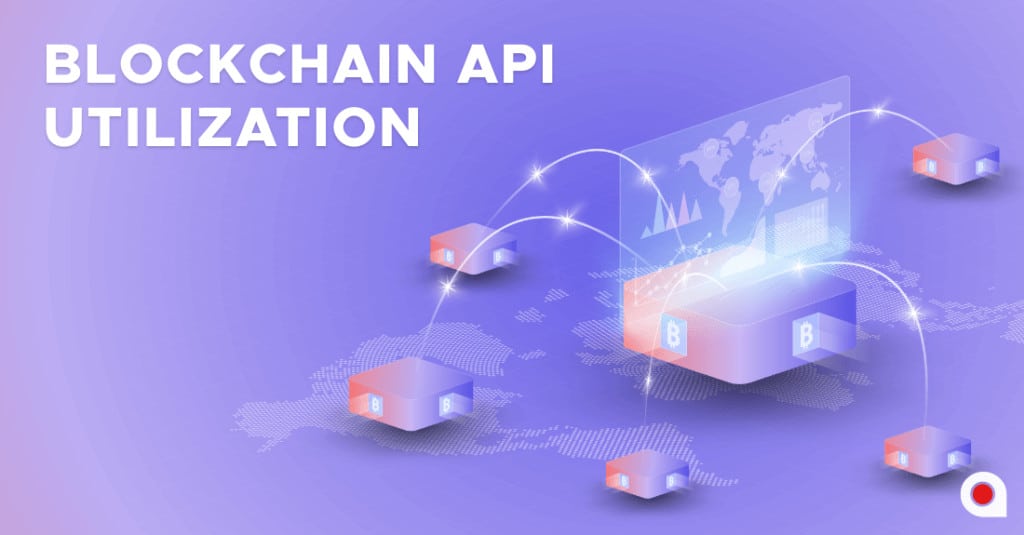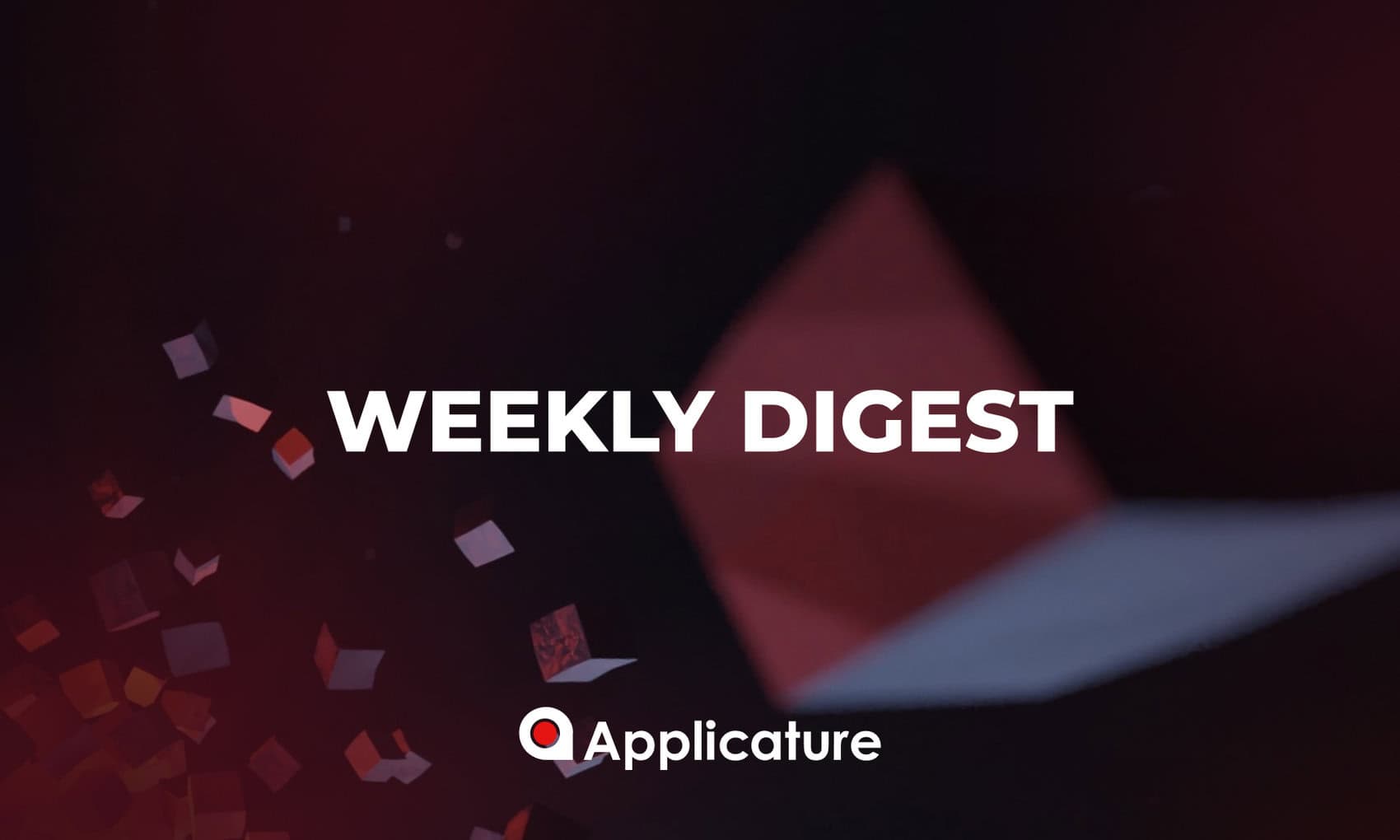
The Essence of Blockchain
To date, the procedure of property-rights registration remains one of the most non-transparent activities. Real estate transactions, as a result, are almost always accompanied by certain corruption risks. It is, therefore, interesting to learn how the use of blockchain technology could contribute to an increase in transparency in the real estate sector.
Blockchain technology gained its popularity in spring 2017, when Bitcoin’s price increased seven times over several months. Its operation is based on the distribution of data recorded on blocks, which are stored on the computers of thousands of users in various parts of the world. Any project created on the basis of blockchain technology can be compared with a database that allows the storage information on many different servers. Each transaction within such a network is decentralized, which excludes the possibility of changing or falsifying data.
The very essence of blockchain technology is the principle of refusal from intermediaries or the removal of a third trustee. As an example, consider a transaction between two individuals without a blockchain. The bank checks that the payer has the declared the funds, after which it either verifies the transaction or rejects it. In this case, the bank plays the role of intermediary and trustee.
However, if two people perform this transaction using a blockchain-based system, then the system verifies the transaction itself. Thus, this technology serves to verify the validity of information, barter, and transactions, regardless of their nature and without the need to contact a trusted third party. At the same time, any fraudulent manipulations are impossible, since this would require making changes to all the blocks in the chain. The blockchain real estate investment procedure will also become less complicated. The principle of blockchain functioning means that transactions, accepted or rejected, become the result of a distributed consensus, not the will of a centralized institution.
So, blockchain is a chain of related blocks or decentralized register of operations, through which you can digitize any information in the world. Thus, this technology can be a tool for confirming the credibility of databases; it is impossible to edit information without the agreement of a majority of participants.
The Revolutionary Blockchain-Data-Storage
A distributed registry is a kind of database. Like traditional databases, the blockchain can contain information of financial transactions. An innovation is that copies of the registry are stored simultaneously by all its users, and are automatically updated. If several “computers” have certified a change, then it is entered into the registry and automatically duplicated on all computers of the chain. At the same time, in order for the chain to be connected, each block contains information about all the blocks of the system. Thus, the removal or modification of any information in the block will be visible to the entire system.
Note: this approach eliminates fraud and unauthorized access to the system. Moreover, decentralized storage of information ensures the immutability and safety of data. After all, as long as at least one computer works, the registry exists.
Blockchain technology keeps information about transactions as well as proof of the existence of data or programs and related information. The two most important platforms — Bitcoin and Ethereum — provide these functions in different ways. Today, it is obvious that this immutability of information is guaranteed by Proof of Work, Proof of Stake, and other consensuses. More interestingly, this allows data to be kept unchanged at a fixed cost of initial maintenance. Whatever happens in the future, regardless of whether the network of miners will continue their work or stop it, this parameter will not change.
Proof of the existence of data is provided by calculating file-based cryptographic amounts. This operation is simple. But in order to make a complex system of interactions convincing, including many documents, signatures, certificates, timestamps, it is necessary to link the data, their checksums, signatures, certificates, and time stamps.
Revolutionary blockchain technology allows downloading evidence of absolute unity, keys, digital signatures, links, cryptographic and other documents, as well as any other metadata into any files, in almost any format; and the user can do it without any problems. Evidence of the integrity of files is converted into personal data. An identifier that represents a unique name is accessible for search engines, and can be used in any document or file.
Not a single case of cryptographic-hash attack is known, since it is impossible to create two files with the same “personal identifier” Even more so, it is impossible to generate a file that has the same identifier as one that is already known. Thus, you can deploy data and create business processes automatically and with the participation of people. This can occur without creating an infrastructure that complements the existing one.
This revolution in the world of documents takes place in all sectors of information processing: contracts with numerous signatures and dates, reliable and dated photographs, certified bills, payroll, expendable documents, blockchain real estate investment, diplomas and time sheets sent by registered mail with notification on delivery, digital IDs – these are just some of the possible options.
Blockchain Enters the Real Estate Market
The most progressive companies are already developing various projects based on the blockchain, including the blockchain real estate investment companies. An important area of distributed-registry technology application is a complex of projects involving the state registration of ownership of various objects (land, real estate, ownership of vehicles, etc.). For example, the National Rights Registration Authority of Georgia, together with the mining company Bitfury, are developing a land registry system based on the blockchain. The land cadastre works are carried out in Ghana (West Africa), where the blockchain will ensure transparency of real estate operations in 28 communities. According to this blockchain real estate startup, this will lay the foundation for attracting foreign investment.
The Swedish government is testing a property registration and accounting system that uses blockchain for real estate transactions. The Swedish National Land Service, together with the blockchain startup ChromaWay, the consulting firm Kairos Future, and telecommunications operator Telia are exploring how blockchain technology can reduce the risk of errors when creating and transmitting real estate documents. Sweden plans to use blockchain for real estate transactions involving all parties: banks, governments, brokers, buyers, and sellers. This will provide the ability to track an agreement’s progress after it is completed. This will instantly confirm the authenticity of transactions.
Another blockchain real estate startup is Propy. This is an international real estate marketplace with decentralized title registry. It allows searching for reals estate in cities like San Francisco, Dubai, Beijing, New York, etc.
Harbor helps to conduct compliance checks of investors such as the KYC (Know Your Customer) and AML (Anti-Money Laundering) checks. The purpose of this blockchain real estate startup is to take hard-to-trade assets such as real estate and private equity and turn them into tokenized securities that comply with Securities and Exchange Commission (SEC) regulations.
So, why do you need to use blockchain for real estate transactions? First, let’s note the main advantages of creating a single platform for registering property rights. Presumably, the accumulation of all information about real estate transactions and the ownership of real estate objects by individuals and legal entities will allow tracing of the nuances and features of these transactions. As a result, because of the disappearance of the need to contact certain bodies and institutions on certain issues, transactions will be accelerated. Remember this, when considering the blockchain real estate investment.
The standard procedure for the sale/purchase of a real estate object includes several logical steps: housing assessment, collection of documents, conclusion of the preliminary contract, conclusion of the main contract, transfer of money, and registration.
Blockchain can change this complicated process. Imagine a system existing in the form of a mobile application that allows smart contracts to be entered using an electronic signature, which significantly simplifies and speeds up the process of real estate transactions in addition to collecting and reviewing documents. Previously, in order to re-register property, it was necessary to make separate requests to state bodies for the provision of information about housing. Today, everything can be learned from the application itself without any requests.
The standard procedure for obtaining a loan to buy a house using the banking system would be considerably simplified, since the bank itself would receive all the necessary information about the house or the borrower using the same application. The risk of forgery of documents associated with sending individual paper copies of the contract to the buyer, seller, realtor, and the bank will disappear. A single electronic copy certified by electronic signatures will be available in the blockchain application.
Finally, if previously the procedure of (re-)registering property in state bodies began after a corresponding request for a deal, in the new system, the re-registration procedure starts automatically, immediately after the conclusion of the smart contract.
Excluding the Intermediary
Blockchain technology, built on the basis of a distributed registry and protected from hacking and rewriting data after making records of transactions, will certainly be included in priority areas of the digital economy, which, in a number of major cities in the world, is already transferring data from the cadastral registry to blockchain registries. It has also been stated that there is a big problem in different countries of the world regarding multiple resale of real estate. Sometimes, one can’t be sure if he or she is the only one who bought the apartment.
Blockchain solves these problems in two ways. In the UAE, these technologies are now being introduced in huge steps, at the state level. We are waiting for a unique transparency of the purchase-and-sale process. We will know, how, where, and from what material the house was built. We may or may not believe this, but we will face it anyway. In matters of construction, the use of blockchain technology allows control of the compliance process for the object being constructed in line with technical conditions, and will not allow fraud with the sale of apartments. A record of the sale of a particular apartment is copied and sent simultaneously to all members of the blockchain network, which excludes the possibility of re-selling the sold apartment to another customer.
This will eliminate third parties who charge fees in the process of real estate transactions: lawyers, realtors, notaries, and employees of registration chambers. In addition, the risk of fraud (for example, when renting or selling apartments) and the time to prepare transactions and references will be reduced. Specialized blockchain platforms will prevent data falsification and simplify the process of checking real estate objects before selling. Customers will get free access to the platforms 24/7.
As mentioned above, one of the most important advantages of blockchain technology is the ability to exclude intermediaries. Sellers and buyers, in turn, will save money. Money deposited by the buyer will be transferred to the seller’s account immediately after the fulfillment of the conditions of the smart contract (all conditions will be stated within it initially). At the same time, data on the transaction will appear on thousands of platform computers. Information on the transfer of property rights can be confirmed at any time.
According to forecasts, the mass introduction of new technology will occur in the interval of the next 7-10 years, but programmers are already overwhelmed with work. The savings the technology could ensure are significant. Strategic consultants from McKinsey & Company estimated an overall figure of savings close to $80 billion. The technology promises to turn from a promising new product into an instrument.
All sectors of the economy are interested in the development of blockchain. Using blockchain for real estate transactions can help in the organization of new forms of registry, titles of ownership, and registration of transactions. The blocks recorded in the blockchain system will certify transference of ownership in terms of property remittances, contracts, and owner data.
Note: the first blockchain real estate startups have already been launched: iNation and the International Bitcoin Real Estate Association are creating a distributed registry of owners. Blockchain for real estate transactions services are being built by ABN Amro and IBM.
The registry of data on real estate and its owners has always been subject to possible hacker attacks, employee abuse, and all the other negative aspects of centralized databases. Transferring data from this registry to the blockchain will increase its security and protect against fraud. It will also protect the registry from overload, inaccessibility of the database, etc.
It is clear that it is possible to encrypt some data for a regular user so that, for example, the passport data of a registry member is not visible. The main thing, however, is that the openness of information in the registry was initially “embedded” in the blockchain. This means that there will be no problems obtaining relevant data.
Real Estate Purchase Agreements Based on Smart Contracts
In blockchain real estate ecosystem, the right of ownership is an entry in the registry that you can just publish on the blockchain, giving access to the system without human intervention. A real estate purchase agreement is a sequence of actions: A gives money, B gives the right of real estate ownership. Accordingly, in real estate, you can apply the algorithm of a smart contract based on blockchain technology.
A smart contract is an electronic protocol written in the Solidity programming language. Its purpose is to transfer information and enforce contract terms for all parties to the transaction. Smart contracts provide the ability to safely exchange assets without the participation of intermediaries. To do this, it uses a program that monitors the fulfillment of the obligations of all contract participants, automatically collecting penalties for violation or failure to comply with the terms of the transaction.
Smart contracts ensure the security of transactions. They are free from the risk of ambiguous interpretation of conditions, due to the fact that they are strictly algorithmic and cryptographically based. Smart contracts are beneficial, as participants do not need to pay lawyers or intermediaries, or sue if a contract is not fulfilled. Moreover, the fulfillment of transaction terms and conditions happens automatically, with minimal expense for their support and without the involvement of third parties (intermediaries). Smart contracts can be used for any financial activities in the field of insurance registration, transfer of property, and lending. In such an infrastructure, each node will act as a land register, performing transactions and automatically checking the conditions of transactions.
Smart contracts have several advantages, namely:
- saving money and time, since you no longer need to resort to the services of intermediaries to enter into contracts or transactions
- security is ensured, since the prescribed conditions of the contract are stored in a distributed register, and no one can change them
- the absence of intermediaries allows participants in the transaction to work on more favorable terms and save their money on lawyers, notaries, audits, and intermediaries
- smart contracts provide faster resolution of issues
Imagine now all the prospects that are now open to us! In real estate transactions, the intermediary, most often, is a bank. The logic of smart contracts implies that an intermediary is not needed. It looks like this: B publishes a certain contract in the blockchain in the form of a program code. This program code allows you to uniquely identify all the terms of the contract. The contract is entered into the system, and, as we have already learned, it is no longer possible to edit it. It is visible to the entire system, and is included in the general register. Person A signs this contract with his or her “unique signature,” and the system blocks the money he or she owes under the contract and sends it to person B. After due confirmation of the fulfillment of the contract, the system will itself transfer ownership rights from A to B.
In order to use smart contracts, it is important that the system has access to the object without human participation, and that the contract is able to be described mathematically, , i.e., with clear logic and consistency.
The bank will still take part in transactions, since the money of the buyer must be “digitized.” Therefore, it must be placed on the account, but it will no longer play the role of intermediary. It will only be a financial structure that stores money and transfers it at the signal of the blockchain real estate ecosystem.
If we are talking about the signing of a smart contract by means of some kind of digital signature (maybe even biometric), then theoretically, there is no need to certify the contract to a notary. Indeed, in this situation, the digital signature itself certifies the parties to the contract. The electronic registration of the transfer of rights, which takes place on the basis of electronic digital signatures, is now a common deal. As soon as the terms of the contract are fulfilled, the parties immediately exchange the assets.
This will remove the problem of confirming the transfer of money and the problem of replacing entries in the registry, but until everyone’s data is digitized, preferably in the blockchain (so that it is not possible to falsify the data), it will not be possible to reduce the risks buyers and sellers face when concluding a contract in the blockchain real estate ecosystem.
A complete transfer of all data to the blockchain is likely to lead to the destruction of all paper workflow. After all, why should one sign a sale/purchase contract in paper form, if it remains unchanged in the blockchain and one can always download it from there?
Summary
To sum up, let’s say that the use of blockchain real estate transactions is an effective way to reduce corruption risks associated with the influence of the human factor, and as a rule, with the long property registration process through government agencies.
The introduction of blockchain real estate ecosystem will make this market much more transparent. Solutions that are possible in this environment will greatly change our lives. Real estate is just a small area in which blockchain is applicable; it will also apply to logistics, utilities, banking services, copyright, online purchases, proof of ownership, insurance, energy, video games, gambling, bookmaking, the Internet of things, and much more.
The transfer of transactions to the blockchain real estate ecosystem of smart contracts allows us not only to simplify and speed up the registration procedure, but also to save significant taxpayer funds. The activation of blockchain today suggests that trust, which traditionally has been given to institutions, is being transferred to user communities, from which it can be concluded that society is moving toward horizontal functioning.
The blockchain is not the future; rather, it is the present. It is important to explore this area of technology, and to understand what it can lead to in order to properly apply it —, and maybe even adapt your business to the new realities.
For more information, contact the Applicature team!

 Ethereum Plasma Explained
Ethereum Plasma Explained
 Smart-Contract Audits: All You Need to Know
Smart-Contract Audits: All You Need to Know
 NEM Blockchain Review
NEM Blockchain Review
 Blockchain API Utilization
Blockchain API Utilization
